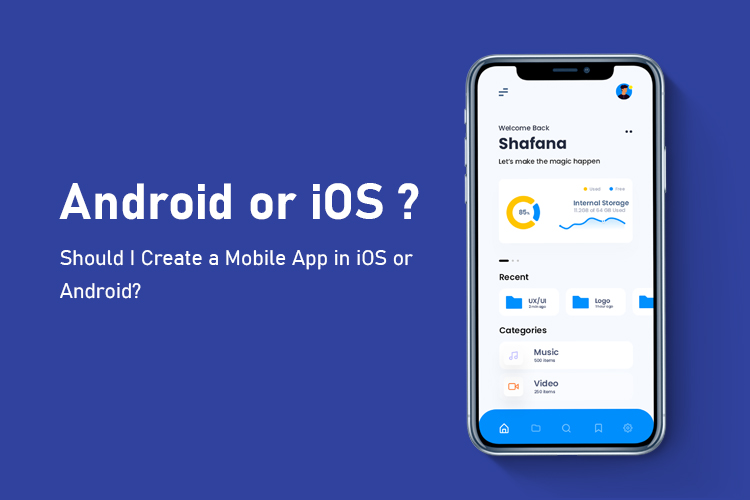
Should I create a mobile app for iOS or Android?
Deciding whether to create a mobile app for iOS or Android is crucial for your mobile app's success. This choice affects various aspects of your project. You need to evaluate your target audience, market demographics, budget, and development resources. Each platform has its own benefits and challenges. Making the right decision can significantly impact your mobile app's performance and reach.
Understanding Your Target Audience
One of the first things to consider is your target audience. Research indicates that iOS users typically have higher disposable incomes and are more willing to pay for premium mobile apps and services. Therefore, if your main audience is in these areas or if you are targeting a high-end user base, developing an iOS app could be more advantageous. Moreover, iOS development is often regarded as more straightforward due to Apple's controlled ecosystem. This means fewer device variations and more consistent performance across devices, which can streamline development and testing.
The Android Advantage
On the other hand, Android has a significantly larger user base compared to iOS globally. Its widespread adoption and affordability make it a preferred choice for many users worldwide. If your target audience is diverse or spans across different demographics, an Android app might be more suitable. However, developing for Android can be more complex and time-consuming due to the wide variety of devices and screen sizes that need to be supported. This variability can increase development and testing efforts, as optimizing an Android app requires accommodating various operating system versions and screen resolutions.
Budget and Development Considerations
Your budget and timeline are also critical factors to consider. Developing and maintaining two separate mobile apps for iOS and Android can be costly. If resources are limited, you might want to prioritize one platform initially based on the factors mentioned above. An alternative approach is to consider cross-platform development using frameworks like React Native or Flutter. These frameworks allow you to create apps for both iOS and Android simultaneously, potentially saving time and money while still reaching a broad audience. Cross-platform development can also simplify maintenance and updates, as you only need to manage one codebase.
Market Demographics and User Behaviour
Understanding market demographics and user behaviour is crucial for making a well-informed decision. For example, iOS users generally exhibit higher loyalty and engagement, frequently updating their devices and operating systems compared to Android users. This behaviour contributes to a more consistent user experience and facilitates easier integration of new features. Conversely, Android's extensive user base offers access to a broader and more varied audience, which can be advantageous for mobile apps focused on achieving widespread adoption.
App Monetization Strategies
Your app monetization strategy can also influence your decision. iOS users are generally more willing to spend money on apps and in-app purchases, making iOS a potentially more lucrative platform for revenue generation. However, the larger user base of Android can offer more opportunities for ad-based revenue models. If your app relies heavily on in-app advertising or freemium models, Android's extensive reach could be advantageous.
Conclusion
When deciding between iOS and Android development, it's crucial to weigh the strengths and challenges of each platform against your specific business goals. iOS offers a more streamlined development process and tends to attract users who are willing to spend more on apps and in-app purchases. This can be advantageous if your revenue model relies heavily on app sales or subscriptions. On the other hand, Android's larger global market share and diverse user base can provide broader reach and potential for scale, especially if your mobile app thrives on user engagement and ad-based monetization strategies.
Furthermore, beyond platform-specific considerations, evaluating your mobile app's unique value proposition and user experience across different devices is essential. iOS and Android users have distinct expectations regarding design, usability, and performance. Tailoring your app to meet these expectations can enhance user satisfaction and retention, ultimately contributing to your app's long-term success.
In conclusion, while the choice between iOS and Android development involves strategic analysis, it's equally important to remain agile in your approach. Continuous iteration based on user feedback and market trends can help you refine your mobile app's features and optimize its performance on your chosen platform. By staying responsive to user needs and market dynamics, you can maximize the impact of your app and drive sustainable growth in your business.
Moreover, studying user data from your app's initial release can give you valuable insights into how users behave and what they prefer. These insights can help you improve your development strategy and decide whether to expand to other platforms, ensuring your mobile app remains relevant and meets market expectations.
